WWF-Philippines Conducts Staff Training for Food Waste and Plastics Waste Management at Nurture Wellness Village
May 2019
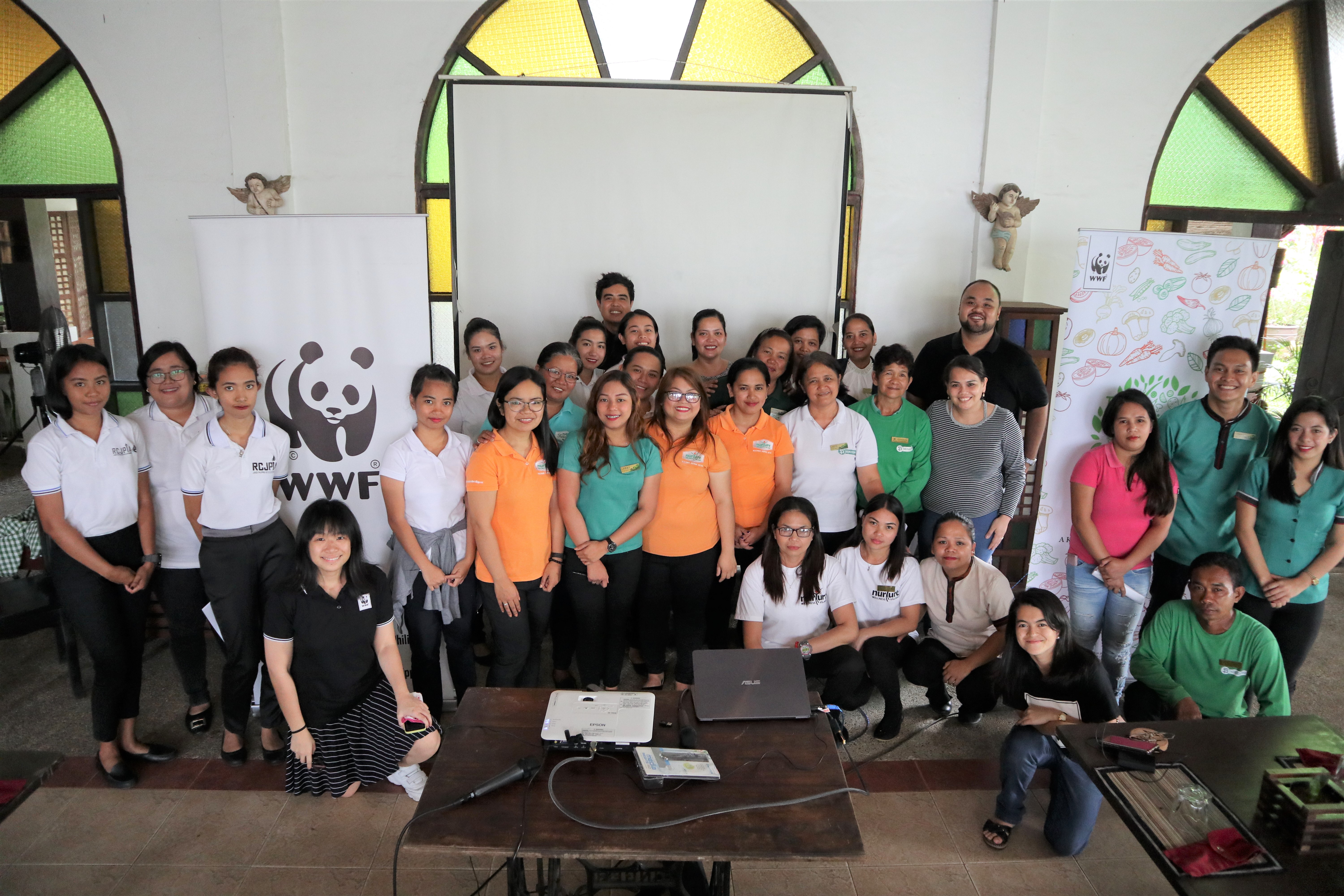
Some of the participants from the staff training on food waste and plastics waste management, in partnership with Nurture Wellness Village, along with representatives from WWF-Philippines. Photo © Gabriel Villalon / WWF-Philippines
Last May 30, 2019, World Wide Fund for Nature (WWF) Philippines’ The Sustainable Diner: A Key Ingredient for Sustainable Tourism project conducted its first staff training on Food Waste Management and Plastics Waste Management for Nurture Wellness Village, one of its active project partners in Tagaytay City. Staff from the establishment’s different departments, including those from the Nurture Spa and the Nurture Farmacy management teams, attended the half-day workshop which introduced the food waste management toolkit for hotels, originally led and developed by WWF US, in collaboration with the American Hotel and Lodging Association (AHLA), with the generous support from the Rockefeller Foundation.
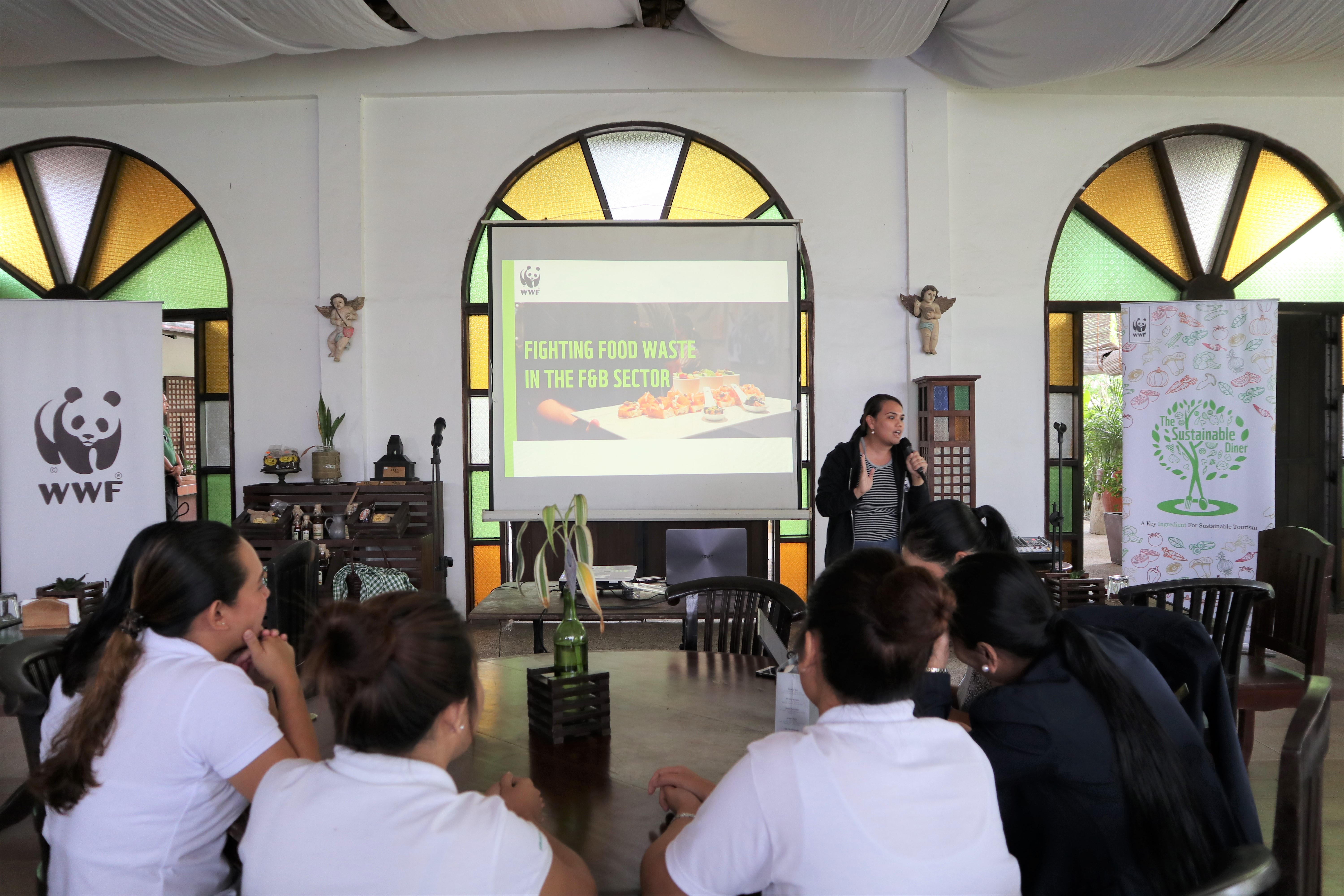
Melody Melo-Rijk, WWF’s Project Manager for Sustainable Consumption and Production in the Philippines, presents the food waste management toolkit for hotels to the staff of Nurture Wellness Village. Photo © Gabriel Villalon / WWF-Philippines
The overall goal of the food waste initiative is for partner companies and organizations to set up a food waste management system, separated into two major parts: food waste separation and food waste measurement. While Nurture Wellness Village does not have a specific food waste management team internally, food waste management and diversion protocols have been set up in their operations, from the Gabriela Restaurant to the Nurture Farmacy. The purpose of the staff training on food waste was to present the toolkit and look at areas where WWF and Nurture Wellness Village can further collaborate in order to improve existing food waste management measures in their property.
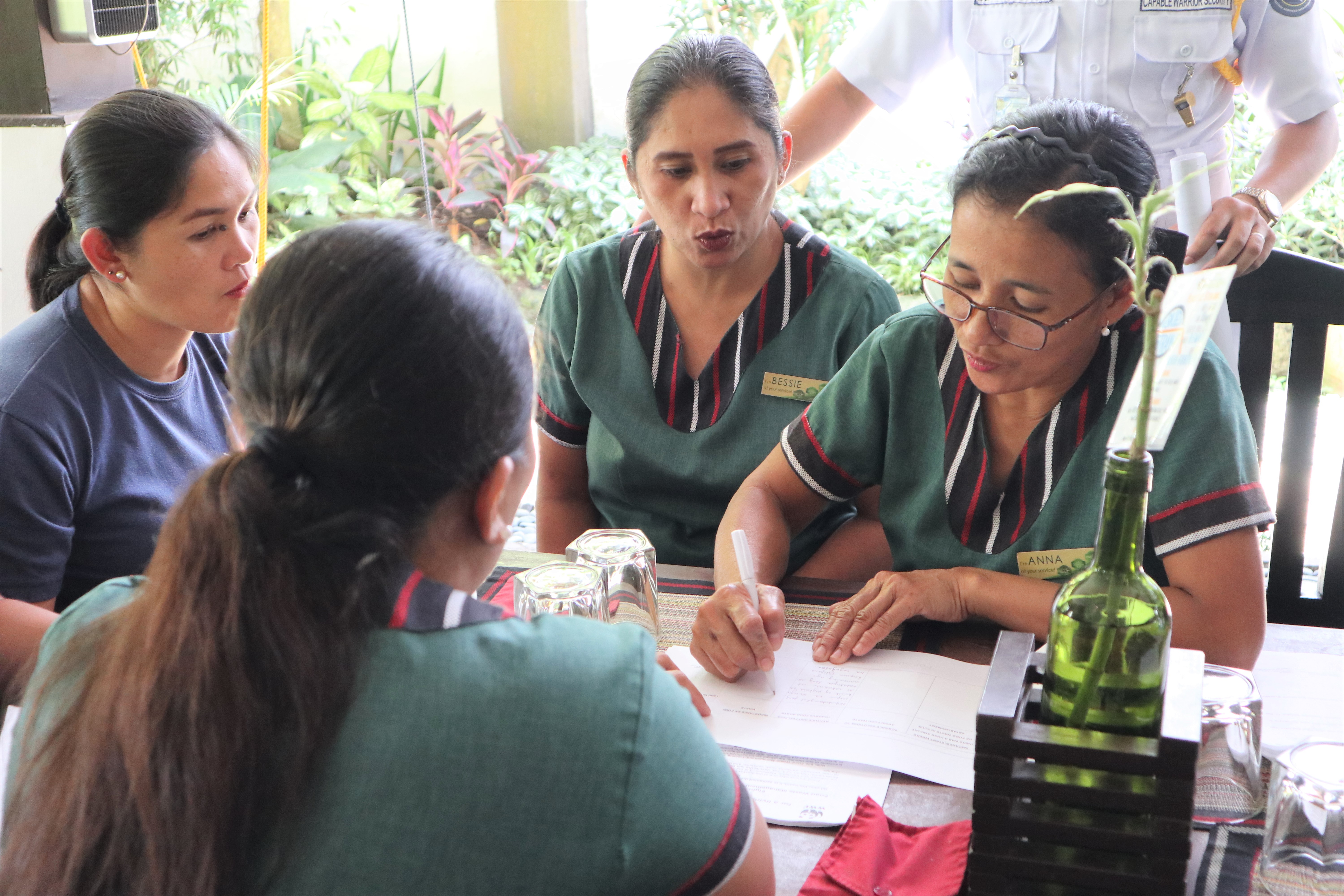
The Nurture Wellness Village staff were divided into groups of five or six, and each group was tasked to come up with an inspirational food waste campaign slogan for the establishment. Photo © Gabriel Villalon / WWF-Philippines
Melody Melo-Rijk, WWF’s Project Manager for Sustainable Consumption and Production in the Philippines, welcomed almost a hundred of the property’s staff by doing a quick introduction on The Sustainable Diner project for the new members and by giving a recap on what the project has achieved so far in its partnership with Nurture Wellness Village. She then proceeded to discussing the Food Waste Management Toolkit - its inception, mechanics, previous applications with other project partners, and reason for implementation, which is to gather different representatives within an organization to form an internal food waste management team in order to lessen the food waste generated by their property.
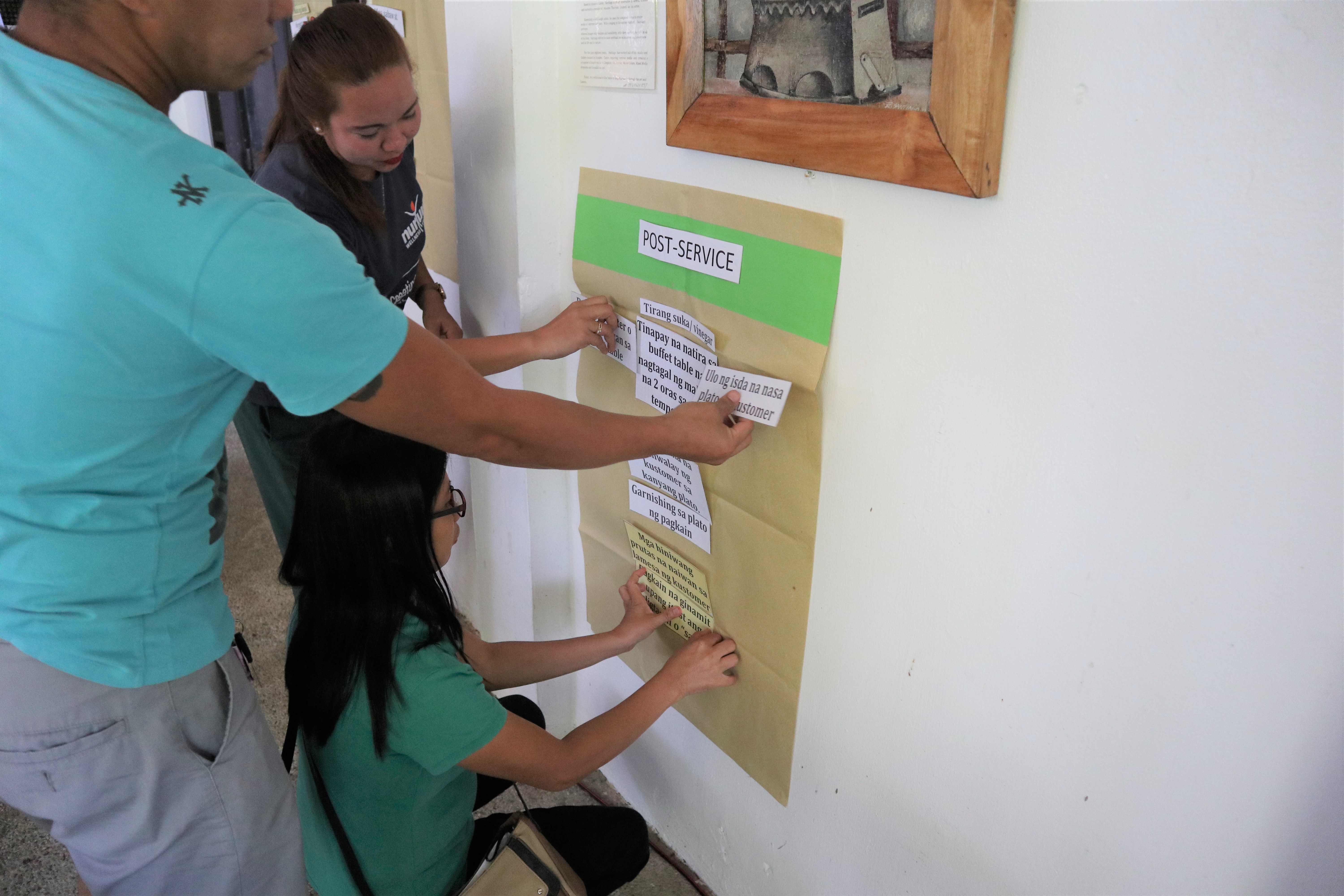
Some of Nurture Wellness Village’s staff participating in one of the activities wherein they were asked to classify whether a certain type of food waste belongs under the pre-service or post-service category. Photo © Gabriel Villalon / WWF-Philippines
The half-day workshop enabled Nurture Wellness Village’s staff to reacquaint themselves with their own internal food waste management initiatives and food waste diversion systems, whether or not they directly worked for the departments that are in-charge. Divided into groups of five and six, staff members from different departments were able to interact with each other and discuss ways and new ideas on how they can all contribute to lessening the food waste generated by Nurture Wellness Village and how they can improve the existing operational protocols in place. Learning to categorize food waste under the pre-service and post-service categories allowed them to identify existing and potential bottlenecks in their operations, and how they can all work together in order to solve some of these problems.
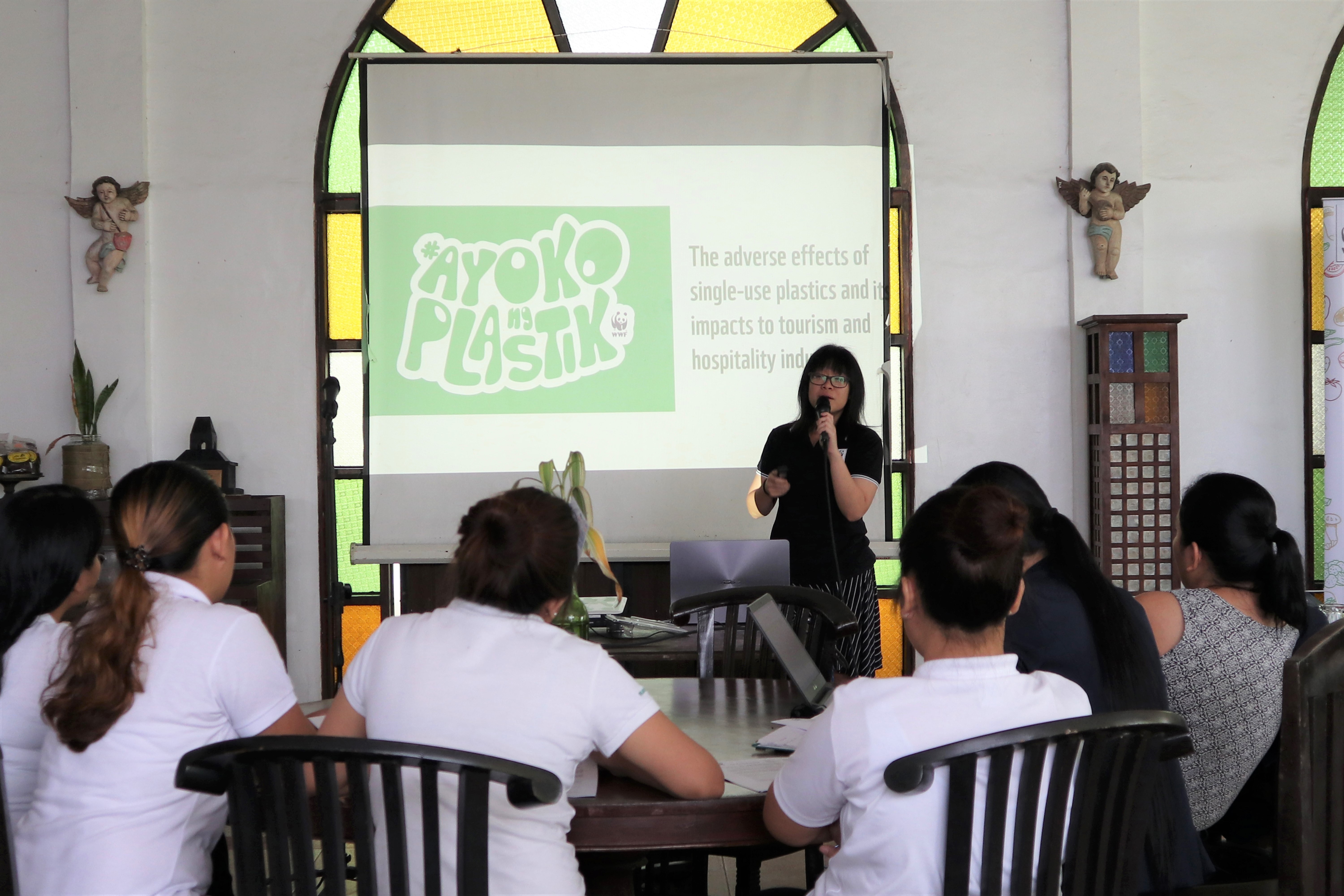
Pamela Luber, The Sustainable Diner project’s Integrated Marketing Communications Specialist, conducts a short talk on plastics waste management and WWF-Philippines’ #AyokoNgPlastik movement. Photo © Gabriel Villalon / WWF-Philippines
To end the half-day workshop, Pamela Luber, the Integrated Marketing Communications Specialist of The Sustainable Diner project, conducted a 30-minute talk on plastics waste management and the global problem on plastics pollution. By introducing WWF-Philippines’ #AyokoNgPlastik movement to the staff of Nurture Wellness Village, she was able to discuss the No Plastics in Nature global initiative of the WWF Network as well as establish the very important role played by members of the tourism and hospitality industry, which includes Nurture Wellness Village, in helping stop the flow of plastics into our ecosystems. Minimizing the use of single-use plastics within restaurant operations is one of the key objectives of The Sustainable Diner project, which is directly in-line with the main goal of the #AyokoNgPlastik movement.
The Sustainable Diner project believes that, by actively working together with partners like Nurture Wellness Village in educating and empowering hotel and restaurant staff, it is possible to reduce the amount of food waste and plastics waste generated not only in Tagaytay City, but in the entire country.
The Sustainable Diner project, under WWF-Philippines’ Sustainable Consumption and Production, is part of the International Climate Initiative (IKI). The Federal Ministry for the Environment, Nature Conservation, and Nuclear Safety (BMU) supports this initiative on the basis of a decision adopted by the German Bundestag.
